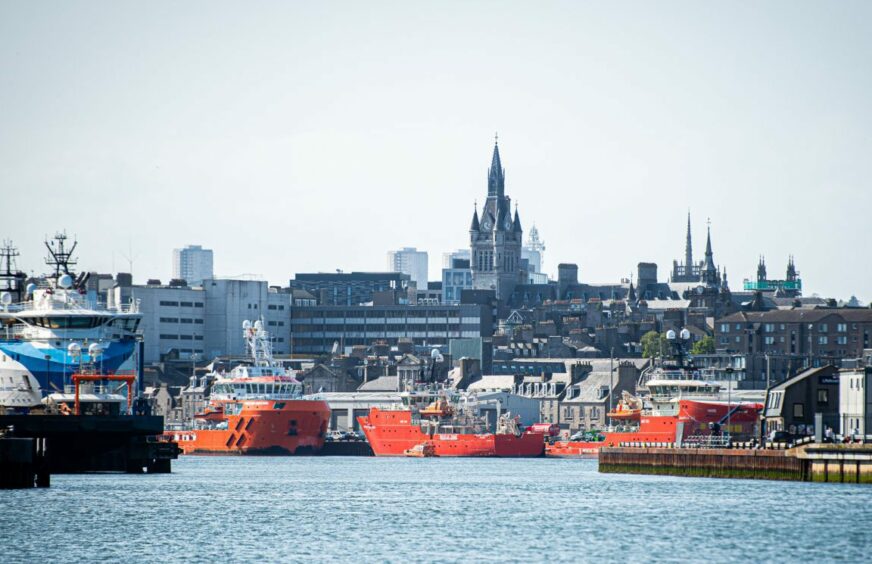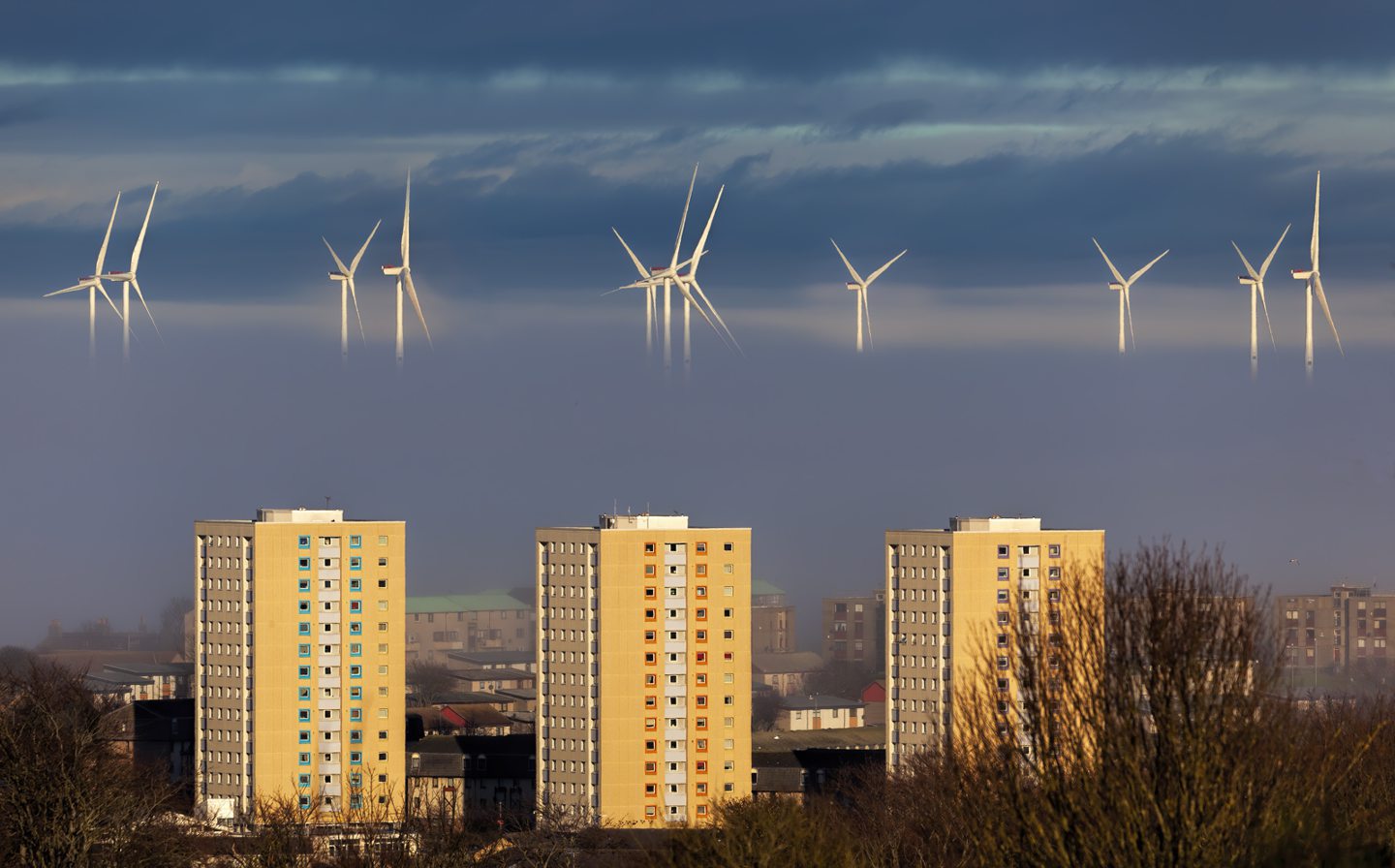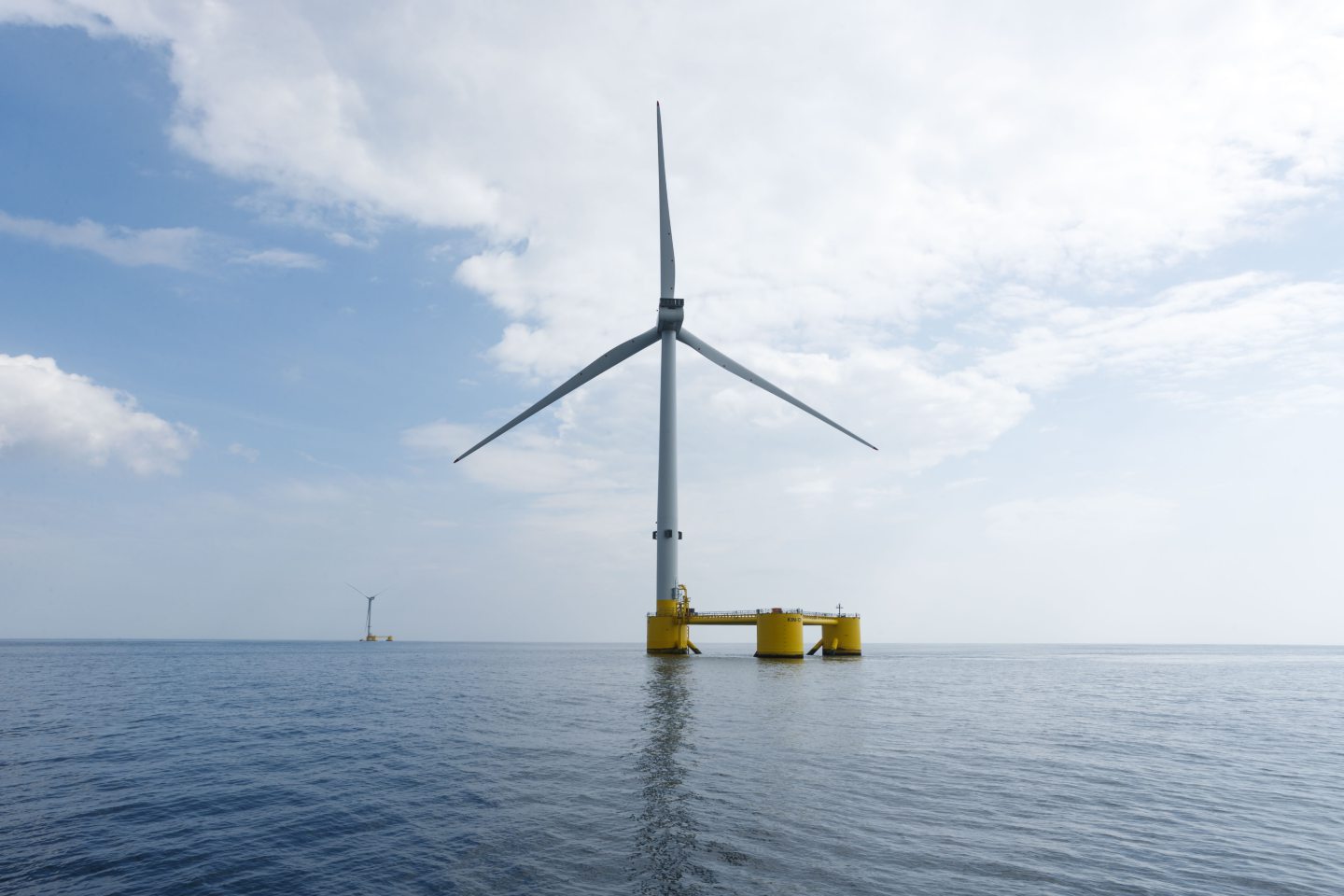
The UK government has confirmed Aberdeen will host the headquarters of GB Energy, but questions over its exact role still remain.
Earlier this month, news outlets including the BBC and the Press and Journal reported Aberdeen had emerged as the winner in the race to host the publicly-owned company.
However, the UK government and the Department for Energy Security for Net Zero (DESNZ) declined to “comment on speculation”, though they did not deny the reports.
Now, UK Prime Minister Sir Keir Starmer has used his speech at the Labour Party conference in Liverpool to confirm the Granite City will host one of his flagship policies.
“We said it belonged in Scotland, and it does,” Sir Keir said.
“But the truth is it could only really ever be based in one place in Scotland.
“So today I can confirm that the future of British energy will be powered as it has been for decades by the talent and skills of the working people in the Granite City, with GB Energy based in Aberdeen.”
It comes as government officials are reportedly already scouting out available office space and advertising jobs in Aberdeen.
DESNZ said two additional offices will also open in Edinburgh and Glasgow once GB Energy is set up.
An interim chief executive for GB Energy will also be appointed “soon” to lead its launch and build its base in Aberdeen.
DESNZ said the company will be initially located in government buildings across the cities, while permanent bases are established.
Aberdeen welcomes GB Energy commitment
Business groups and industry leaders welcomed confirmation that the UK government will establish GB Energy in the Granite City.
Long known as the ‘Oil and Gas Capital of Europe’, the city wants to reposition itself as a centre for net zero investment and campaigned intensively for the GB Energy HQ.
Aberdeen & Grampian Chamber of Commerce chief executive Russell Borthwick said the announcement is “fantastic news” for Aberdeen and will secure its status as a “global energy capital for many decades to come”.
“We are home to over a thousand energy supply chain companies and the lion’s share of energy workers who stand ready to deliver the UK’s transition to net zero,” Borthwick said.
“Over 17GW of floating offshore wind projects will be deployed within 100 nautical miles of our city and 20,000 jobs are waiting to be created in Carbon Capture off the Buchan coast.
“With the people, skills, strategic infrastructure and future pipeline of projects already in place, the North-east of Scotland is ready to lead the way.”
Concerns over Labour approach to oil and gas
But Borthwick warned the Labour government over its taxation approach to the North Sea oil and gas sector.
“However, we do not need to kill off one industry to grow another – in fact, the opposite is true, as one cannot exist without the other,” he said.
“We therefore urge the UK government to use next month’s Budget to restore confidence in the North Sea to protect the jobs, supply chain and energy production we need to ensure a just transition.”
North Sea Transition Authority chef executive Stuart Payne said Aberdeen is “ready to deliver the transition and a workforce that leads the world”.
Meanwhile, ETZ chairman Sir Ian Wood called on the energy industry to work closely with the UK government to ensure GB Energy “fulfils its stated ambition as an investment vehicle that accelerates the country’s diversification to green energies”.
Questions over GB Energy role remain
Alongside pledging to locate its headquarters in Scotland, Labour has confirmed GB Energy will have an initial focus on floating wind projects.
The government has also outlined a partnership between GB Energy and The Crown Estate (TCE), which it said could unlock up to £60 billion in investment.
This comes alongside new borrowing powers for TCE, which could see it allocate up to £400 million to accelerate offshore wind projects.
The government has also appointed former Siemens UK chief executive Juergen Maier as chairman of GB Energy.
But amid the positive reaction, experts say questions remain over the exact role GB Energy will play and how effective it will be.
University of Aberdeen Centre for Energy Transition director Professor John Underhill said locating GB Energy in Aberdeen recognises the contribution the city, and Scotland, has made to the UK energy sector and its importance to the energy transition.
“However, I think the more interesting question is about what GB Energy will actually do, how it will operate and what success looks like, as opposed to where it will be located,” Underhill said.
“Given the need to reduce industrial emissions from other parts of the UK and the importance of investment from banks, private equity and industry based elsewhere, it’s likely that GB Energy will be run on a hub-and spoke basis with a number of regional offices.
“So, the actual impact on the city will depend upon the size of and head-count in GBE’s hub and, given its national remit, I suspect that the footprint may not be as large as many expect.”
GB Energy an ‘investment vehicle’
With GB Energy set to effectively be an “investment vehicle”, Underhill said many observers see it as an opportunity for the UK government to “have skin in the game”.
Companies also stand to benefit from funding which will save capital expenditure and give more certainty that projects will proceed, he said.
“Given these drivers, there is a need for greater clarity about the technical basis for decision-making, and for due diligence and assurance to be factored in to determine which project has primacy as there will be many people and companies seeking funding for their preferred project,” Underhill said.
“It is important to have a hard look and critical evaluation of each and every project to determine which one should receive GB Energy backing.”
Meanwhile, Robert Gordon University Energy Transition Institute director Professor Paul de Leeuw said the announcement is “very welcome news” for the region.
“The new organisation will be able to tap into a world-class and well-established energy ecosystem,” de Leeuw said.
“It will also be able to immediately leverage the sector’s leading offshore energy supply chain and workforce.
“To set GB Energy up for success, it will now be key to get clarity on the focus areas for the next few years, the deliverables, the organisational set-up, and how it will collaborate – and work – with other organisations and stakeholders in the sector.”
GB Energy scepticism
Following Labour’s announcement, political opponents in Scotland remained sceptical of the benefits it would bring to Aberdeen and the wider north-east.
Conservative West Aberdeenshire and Kincardine MP Andrew Bowie said: “All investment in the north-east of Scotland is welcome.
“But basing GB Energy in Aberdeen will in no way make up for the thousands of jobs that’ll be lost in the North Sea as a result of Labour’s dreadful policies on oil and gas.
“And what will GB Energy do anyway?”
Meanwhile, Scottish Conservatives energy spokesperson Douglas Lumsden said GB Energy will not compensate for the “hammer-blow” to the north-east of Scotland from Labour’s oil and gas policies.
“People in the north east will see this gimmick for what it is – a totally inadequate consolation prize wheeled out to distract attention from the danger Labour’s policies pose to Scottish jobs, our economy and energy security,” Lumsden said.
The SNP also criticised the lack of clarity from Labour on whether GB Energy will bring down household energy bills.
SNP Westminster leader Stephen Flynn called on Sir Keir to explain how GB Energy will fulfil Labour’s election promises.
“After all, the legislation itself is barely four pages long, offers no insight into how the body will be structured nor what its strategic aims will be, and doesn’t even begin to outline how energy bills will reduce as promised,” Flynn said.
“In addition, there are no answers as to how the people of Scotland will benefit from this new body which is seeking to capitalise on our energy resources – in that respect history appears to be repeating itself.”
What will success look like for GB Energy?
Underhill said in order to be a success, GB Energy will need to “critically evaluate projects”, and only back technologies which will have the greatest impact.
“GBE will be a success if it diversifies our energy sector, reduces our carbon footprint, increases energy security and reliability, creates new jobs and leads to lower household bills,” he said.
“It will have failed if the projects it supports leads to power cuts and blackouts, higher bills, increases emissions and job reductions.”
Underhill also said the Labour government should learn from a National Audit Office review of the former state-owned Green Investment Bank (GIB).
The former Conservative and Liberal Democrat coalition government launched the GIB in 2012, but it was later sold to Australian investment bank Macquarie Group in 2017.
“I think it is important to ensure that the learnings of that audit are taken on board and addressed to ensure that GBE avoids the same challenges that GIB faced,” Underhill said.
All eyes on Autumn Budget
UK energy industry leaders will be paying close to attention to Labour’s first Autumn Budget since taking office.
Chancellor Rachel Reeves is expected to outline further details on GB Energy when she hands down the budget on 30 October.
The North Sea oil and gas sector will also be paying close attention, with the industry warning of the potential impact of planned changes to the windfall tax.
In July, Reeves confirmed plans to raise the headline rate by 3% and remove “unjustifiably generous” investment allowances in the Energy Profits Levy (EPL).
But the industry is warning the changes could land a £13bn blow to investment in the UK economy, potentially putting North Sea jobs and net zero targets at risk.
Recommended for you

 © Peter Byrne/PA Wire
© Peter Byrne/PA Wire © Supplied by Michal Wachucik
© Supplied by Michal Wachucik © Supplied by ExxonMobil
© Supplied by ExxonMobil © Image: University of Aberdeen
© Image: University of Aberdeen © Image: Big Partnership
© Image: Big Partnership © Image: Euan Fraser/Aberdeen Renewable Energy Group
© Image: Euan Fraser/Aberdeen Renewable Energy Group © Supplied by Flotation Energy
© Supplied by Flotation Energy